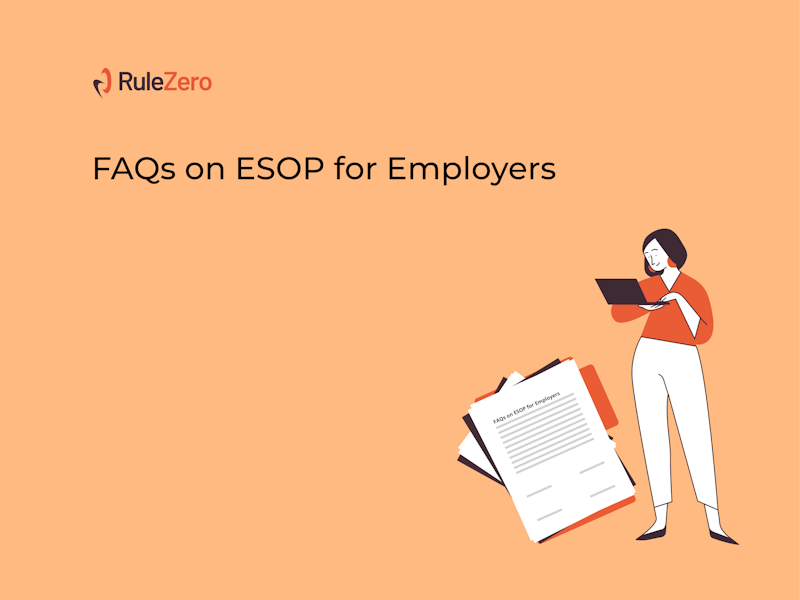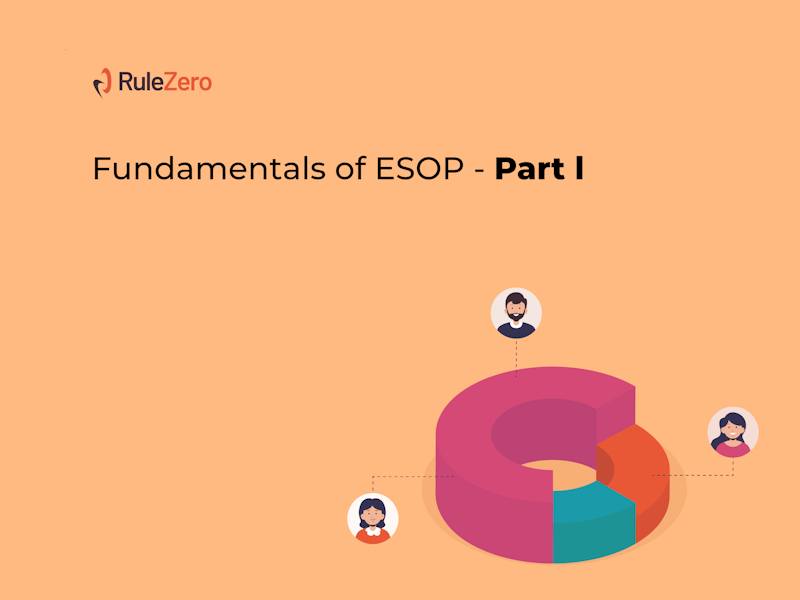Are you looking for a way to compensate and motivate employees/advisors/consultants without issuing shares? SARs are a way to go. In India, there are three most common ways in which stock option plans can be implemented – Standard ESOP, Trust, and SARs. The rights of the stock option holders and the administration of options vary across these plans. Hence companies must be mindful when selecting the plan type.
In this blog, we have answered the most common questions asked on SARs.
1. What are SARs?
SARs or stock appreciation rights is a means to motivate and reward employees. Unlike ESOPs, SARs can also be granted to advisors and consultants. SARs provide its holders the right to receive the cash value of shares equivalent to the appreciated value of the company’s share price between two set dates. The appreciated value is calculated as the difference between the fair market value of the company’s shares at the time when the SARs exercise and the price set at the time of grant of SARs. The grant price of SARs is set by a registered valuer.
SARs do not represent actual equity, nor do the SAR holders(as SARS beneficiaries) become shareholders. They only enjoy the economic benefit of a specific number of shares, which was agreed at the time when the SAR was granted.
For example, if a SAR holder holds 100 SARs, the prices being INR 100 and INR 500 at the time of grant and exercise respectively, then he/she will receive INR 40,000 (400*100) as payout.
2. How are SARs granted?
The company’s compensation committee sets the grant and vesting conditions of SARs under a stock option plan. The vesting schedule is also known as the earning schedule. The committee determines who is eligible to participate in the scheme, the exercise price at which the grant is offered etc. This is followed by sending grant letters to identified individuals. Like other plans, the conditions for earning the economic benefits on SARs depends on various factors, such as performance, continuation of employment after the grant is made etc.
3. What are Earned SARs?
The SAR holders must satisfy certain conditions for the SARs to become Earned SARs. These conditions may be linked to time (continuation of employment), performance, or a combination of both. Once the SARs become earned SARs, the SAR holder becomes eligible to receive payment on SARs. Just like a standard stock option plan, the SAR holder must send an exercise request to the company to receive the payout on the Earned SARs.
4. How are SARs different from stock options?
The fundamental difference between an ‘Option’ and a ‘SAR’ is with respect to the ownership of shares granted. Once exercised, options provide its holders actual ownership of a company’s shares, making them shareholders in the company. This entitles them to all rights and benefits flowing from the ownership of such shares.
SARs only provide benefits equivalent to the appreciated value of shares between two set dates. SAR holders do not become shareholders of a company on exercise nor do they receive any rights that come with being the shareholders of a company.
5. When is the SAR holder be entitled to a payout on SARs?
The right to receive payment on a granted SAR will arise only upon the satisfaction of the payment conditions identified in the grant letter or on the occurrence of a liquidity event.
6. What happens to SARs when employment is terminated?
If the employment is severed before the expiry of the vesting period due to reasons such as death, resignation/termination without cause, retirement etc., any unearned SARs shall lapse, and the employee will be entitled to receive payment in respect of the earned SARs.
However, in the event employment is for misconduct (abandonment, theft, fraud, etc.), all SARs, whether earned or not, shall lapse and the employee shall not be entitled to any payment under the SAR scheme.
7. What are the advantages of granting SARs?
For companies, as SARs do not result in issuing shares on exercise, there is no dilution of shareholding. Further, SARs can also be granted to non-employees like advisors and consultants.
Similarly, employees or other SAR holders also don’t need to pay anything to exercise their earned SARs. Once the SARs become earned SARs, its holders are directly paid the appreciated value of stock.
8. What are the disadvantages of SARs?
Since SARs involve payment of cash to the option holders, the company must have sufficient cash reserves to meet the entire payout amount. The payout may result in depletion of the company’s cash reserves. Also, if the value of stock does not appreciate, then the holders will not earn any payout on their SARs.
9. Can a company run an ESOP and SAR plan at the same time?
Yes, both plans can be created and administered simultaneously.
10. Are SARs a type of bonus to employees?
No. SARs are considered an incentive and can be awarded to employees and advisors for their services. It is not treated as a bonus.










